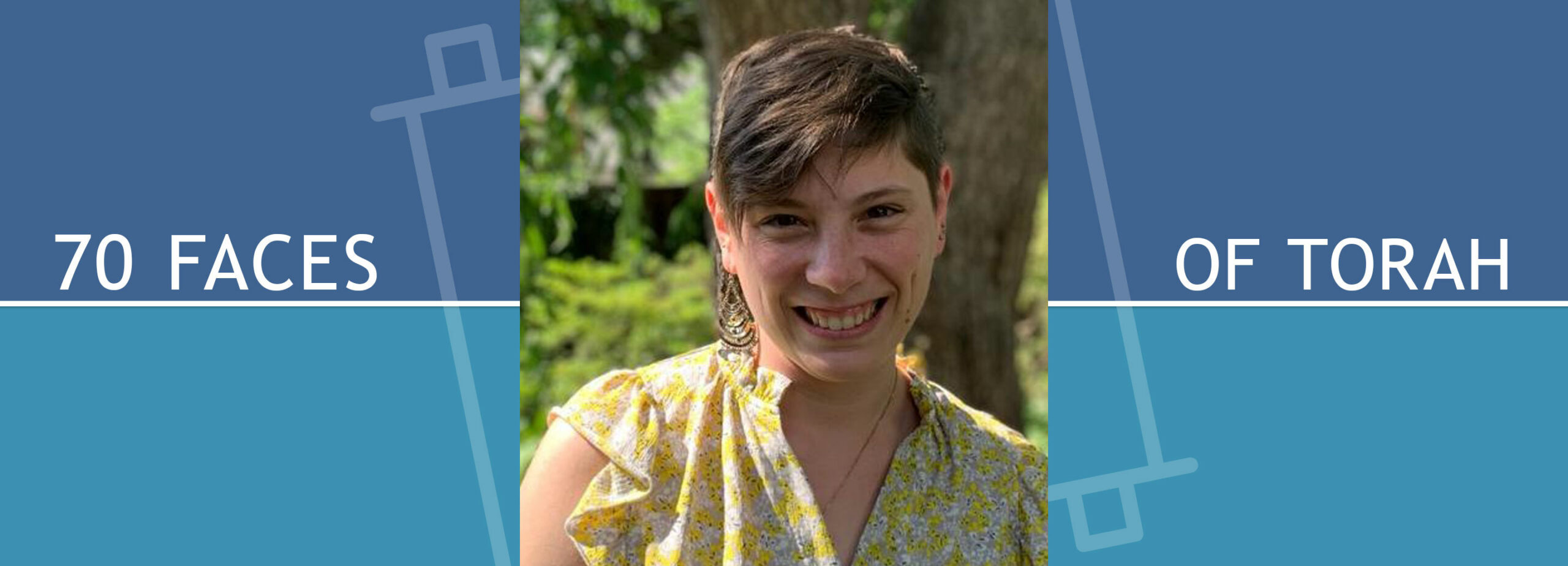Jewish learning The Blessing of Asking for Help

Parashat Tazria (Leviticus 12:1-13:59)
Parashat Tazria, with its long and dry list of details about leprosy, has never felt so relevant. It’s as if some of this parasha’s questions were taken straight out of a CDC press conference. When is it important to isolate yourself from others for health reasons? In what situations can we be more lenient? Is illness transmittable through surfaces?
The Etz Chayim commentary on the parasha notes, “Perhaps no concept in the Torah is less accessible to the modern reader than the notion of tumah (ritual impurity).” I had to laugh when I read this. As a modern reader living in a world of Covid tests, Covid exposures, and just Covid in general, the anxiety around impurity, disease, and contamination feels all too familiar.
Admittedly, leprosy is a whole different ball game from a modern pandemic. Although a certain amount of expertise is required to discern what is and isn’t permissible, a notable difference between the world of Parashat Tazria and our world is who is considered the expert in medical matters. For skin-disease stricken Israelites, Aaron was their Anthony Fauci. (Please G!d, may people never again ask religious figures to diagnose their dermatitis). In contrast to the laws around menstrual tumah, the instructions for leprosy weren’t given to everyone; they just went to the priests. Leviticus 13:1 states:
וַיְדַבֵּר יְהֹוָה אֶל־מֹשֶׁה וְאֶל־אַהֲרֹן לֵאמֹר׃
God spoke to Moses and to Aaron.
Ibn Ezra points out that the laws of tumah around leprosy are communicated directly to Aaron because he is in charge of determining what to do about human maladies. I am struck by the weight of Aaron’s responsibility. The long list of instructions about leprosy seems short, when one considers that those instructions were all the priests had to hold onto in deciding whether or not to separate someone from the community. (By contrast, when making Covid decisions for my community, I have resources to turn to!)
Why put so much pressure on Aaron, and why give the priests so much power? Why not empower the people to make these decisions?
BT Sota 5a offers some indication for the “why” behind concentrating this information. Through a close-reading of the instructions regarding leprosy, Rabbi Zeira makes the claim that humility paves the path to healing. He subtly suggests that there are times when we should know the limitations of our own knowledge, when perhaps it is best that we look to someone else for information.
Specifically, Rabbi Zeira points out that when a person is the subject of an instruction there is no mention of healing (e.g. “When a person has on the skin of the body a swelling, a rash…it shall be reported…” in Lev. 13:2). However, when the focus is on the skin, healing is mentioned (e.g. “When an inflammation appears on the skin of one’s body and it heals…”). Using this distinction, Rabbi Zeira makes the claim that “one who sees [themselves] as flesh will be cured, but one who holds [themselves] in high regard will not be cured.” In the scary uncertainty of this experience of illness, the person who sees themselves in high regard, who doesn’t look outward or upward for help, will not improve.
I can imagine the person who suddenly sees these scary, strange skin spots, who recognizes their own fragility and the limitations of their knowledge, and goes seeking answers. They don’t want a democratic decision-making process. They want a clear delineation of next steps. Sometimes trying to turn to “Dr. Google” and your best friend and your “Facebook hivemind” yields less clarity and more tzures (trouble).
Although a wildly different scenario, I am reminded of an email I sent to a mentor while facing a difficult decision. In my harried haze of overwhelm and uncertainty, I wrote, “I’ve already driven myself crazy thinking about whether or not to do it. So, I’m less looking for advice and more looking for you to tell me what to do.”
In my intense state of not knowing, I needed a wise, knowing figure. I needed someone who held more knowledge than me and could hold me through the process of deciding. I needed to know that there was someone out there who knew more, and who could help.
As seekers, we have to learn to ask for help. We need to learn to reach out, even in our most vulnerable moments. Commenting on Leviticus 13:45, BT Niddah 66a teaches us that we must share our pain with the masses, so that the masses can pray on our behalf. In the anguish of indecision, I found comfort in reaching out to someone wiser. Likewise, in their physical pain, maybe the person with leprosy found comfort in not only being able to, but being obligated to turn to a higher authority.
Rather than reading the concentration of leprous instructions as disempowering, we can read it as empowering. Appointing leaders or experts gives us permission to ask for help. Suddenly, we’re not being intrusive with our questions or our stress. We’re supposed to admit that we can’t function alone! We’re supposed to admit that we don’t know. We’re supposed to say, “I’m looking for you to tell me what to do” or “Please bring me chicken soup,” or “Help me get through this.” To paraphrase Rabbi Zeira, as fallible humans and people of mere “flesh,” acknowledging our limitations is the best way to heal.
Heather Renetzky is a third-year Hebrew College rabbinical student. She is a firm believer in the healing power of deep listening, trees, and homemade chocolate chip cookies.

